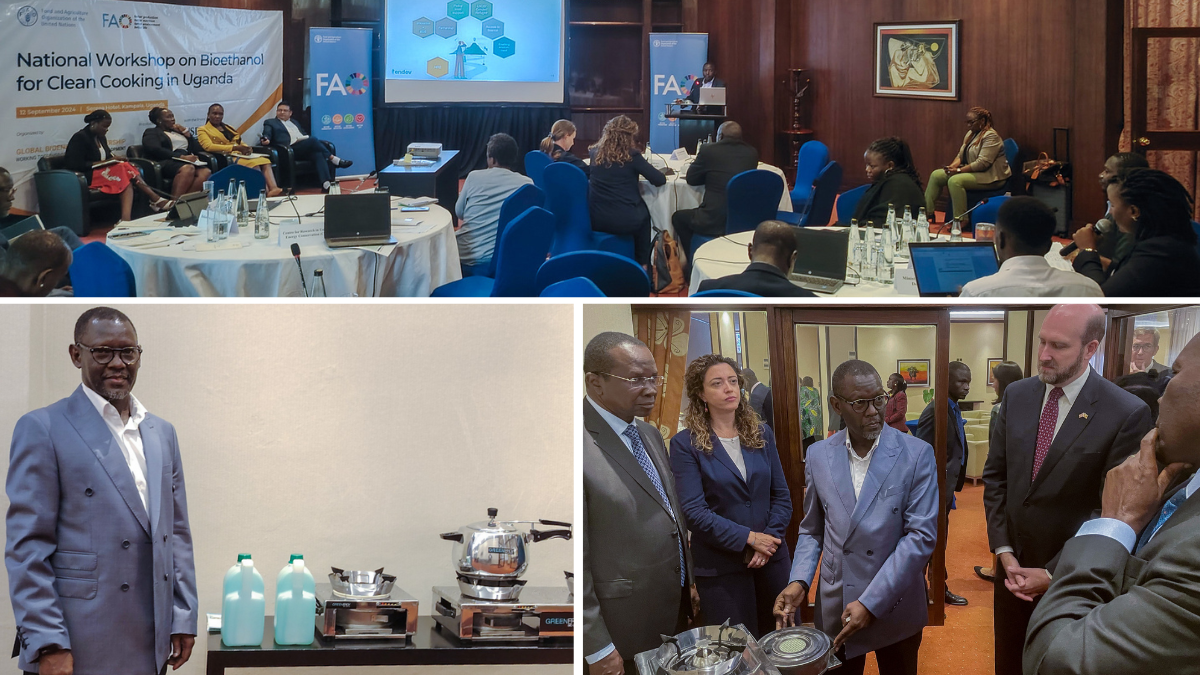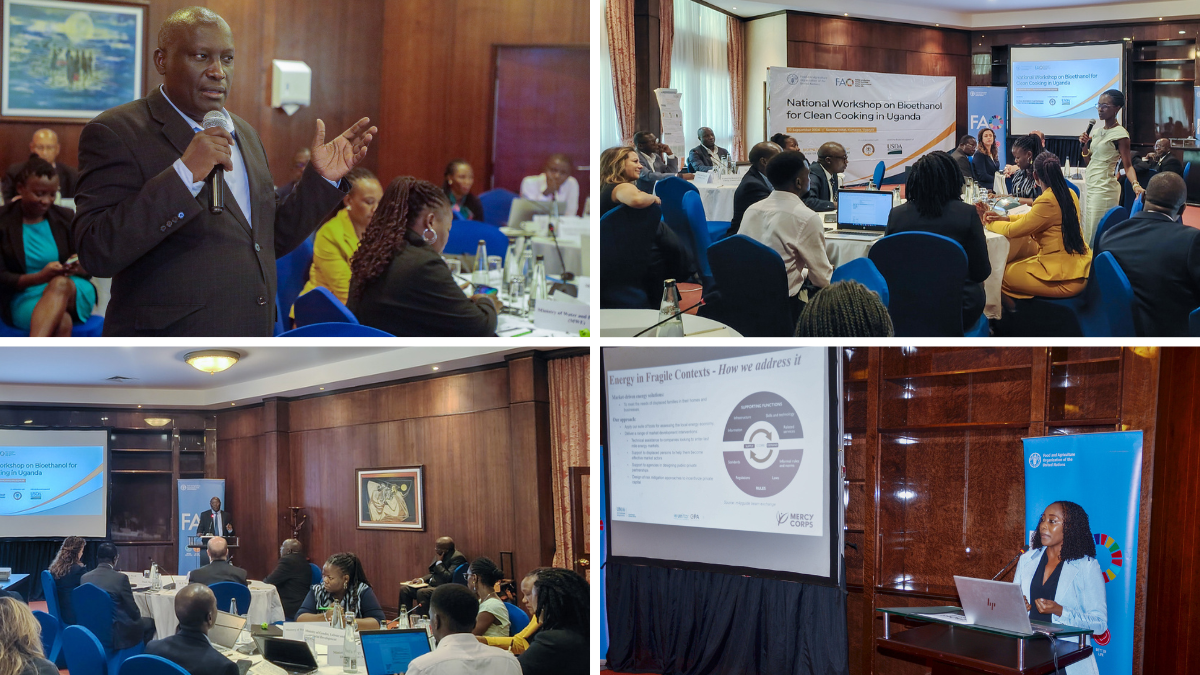Uganda seeks to scale bioethanol production and adoption to meet national clean cooking goals and climate objectives
At a national workshop organized by GBEP, stakeholders from various sectors convened to delve into the potential benefits of bioethanol as a clean cooking fuel alternative and discuss strategic solutions to overcome barriers to its accessibility and expansion.

KAMPALA, Uganda – Uganda is turning to bioethanol as a clean and safe cooking fuel as part of its efforts to make sustainable energy solutions accessible to all.
At the National Workshop on Bioethanol for Clean Cooking in Uganda, organized by the Food and Agriculture and Organization of the United Nations (FAO), through the Global Bioenergy Partnership (GBEP), stakeholders discussed the promising potential of bioethanol as a critical component of the country’s energy transition agenda, as well as strategies to address challenges to its adoption and expansion. The event, held in collaboration with Uganda’s Ministry of Energy and Mineral Development (MEMD) and with the financial support of the United States Department of Agriculture - Foreign Agricultural Service (USDA-FAS), brought together 41 participants from the Government of Uganda, international and local organizations, research and financial institutions and the private sector.
Bioethanol is increasingly recognized as an efficient and clean cooking fuel alternative. It helps reduce pressure on forests by replacing charcoal and firewood use, improves health outcomes by cutting down on indoor air pollution, reduces greenhouse gas emission, and provides economic opportunities.
Uganda has seen a growing interest in the local production of bioethanol, spurred by the declining prices of sugarcane and cassava —two key crops used in its production— and the government’s introduction of value-added tax (VAT) exemptions on bioethanol fuel and stove parts. Local companies, like Bukona Agro, are already producing bioethanol for cooking and assembling cookstoves using imported parts.

Challenges in scaling bioethanol
However, challenges remain in scaling bioethanol’s reach to rural and humanitarian settings, where logistical constraints and economic barriers limit its uptake. Many rural households continue to rely on firewood, which they collect for free, making it difficult to convince them to switch to cleaner cooking systems. The shift could also affect the livelihoods of many rural women in Uganda who depend on selling charcoal as a source of income.
Producing and distributing bioethanol and manufacturing cookstoves can be complex. There are also concerns about the potential risks associated with using food crops like cassava and sugarcane for bioethanol, particularly threatening the availability and driving up the prices of these staple commodities.
Overcoming these barriers is essential for Uganda to accelerate the transition towards clean cooking and reach its goal of providing at least 50 percent of its population with access to clean cooking by 2040, as well as meeting its broader clean energy and climate objectives.
“Our goal is to scale bioethanol adoption to at least 500,000 households in the short- to medium-term,” said Dr. Okaasai Sidronius Opolot, Uganda’s Minister of State for Energy. “We have established an enabling policy environment, with zero tax on denatured ethanol and waiving VAT on ethanol stoves, to help drive affordability and adoption across Uganda,” he added.

Looking ahead
To make bioethanol and clean cooking technologies accessible to low-income households, Uganda is exploring several financing mechanisms such as concessional finance and results-based financing (RBF), supported by Equity Bank and the Private Sector Foundation Uganda (PSFU), which could potentially cover bioethanol stoves in the future. Another initiative to reduce the upfront costs of bioethanol fuel and stoves involves using carbon credits.
Private sector investments will be crucial for scaling up bioethanol production. Tax incentives and grants for setting up new refineries were discussed as ways to attract investment and reduce the costs of bringing bioethanol to market. By lowering operating costs and establishing localized value chains, Uganda could make bioethanol more competitive with traditional fuels.
Workshop discussions also emphasized the need for establishing clear standards and policies to support the local bioethanol market, including setting guidelines for stove quality to ensure safety and efficiency. Moreover, there is a need to assess Uganda’s biomass resources to analyze the environmental, social, and economic impacts of bioethanol production and avoid unintended consequences such as overuse of energy crops, rising food prices, and excessive pressure on agricultural land.
Additionally, awareness-raising and behaviour change campaigns will be critical to inform households about bioethanol’s health and environmental benefits and ultimately to encourage them to switch to cleaner cooking technologies and fuels. Workshop participants also called for technical training to enhance the skills of local manufacturers, stove maintainers, and end-users.
While challenges remain, with the right policies and continued collaboration among government, private sector and relevant stakeholders, Uganda could meet its clean energy goals and ensure that cooking is safer, cleaner, and more accessible for all.

